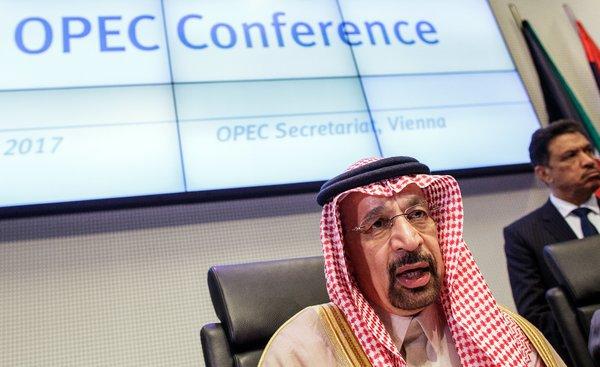According to Khalid al-Falih, Saudi Arabia’s energy minister, compliance by some key producers to the cut commitment, agreed to run between January and June, has been “unquestionable.”
“I have been speaking to many ministers and those who have been slow in achieving their targets in January have all committed to getting quickly into position to meet their commitment through six months,” Falih said on the sidelines of an industry event in New Delhi.
Saudi Arabia was a driving force behind the forging of the latest 1.2 million barrels per day output cut agreement aimed at propping up oil prices, which plunged from $86 per barrel in October to $50 per barrel at the end of 2018.
Falih’s comments come a week after Mohammad Barkindo, OPEC Secretary General urged members of the producer group and its 10 allies “to remain firm in achieving” their output cut goals. Barkindo’s statement came after reports of a lack of compliance with targets by some producers, notably Russia, Iraq and Nigeria.
OPEC’s monthly oil report showed that its 14 members pumped 30.81 million barrels per day in January, down nearly 800,000 barrels per day from 31.60 million barrels per day in December.
January was the first month of the coalition’s current deal, which is due to last until the end of June, with a review in April.
At the last OPEC meeting in Vienna, the group’s members agreed to slash output by 812,000 barrels per day, with Russia and nine other non-OPEC allies committing to a cut of 383,000 barrels per day for the first six months of 2019.
Referring to the planned April meeting, Falih said he “hopes” the oil market will be balanced by then.
“We will consult and we will calibrate our supply plans for the second half of the year,” Falih said “So April will be an important… post on a journey for market stability and keeping supply and demand closely aligned and getting inventories to where we want them to be, which is around five-year average global inventory levels.”
According to a survey by S&P Global Platts, the 11 OPEC members obligated to reduce oil output under the agreement signed late last year achieved 76% of their required cuts in January, with production falling 619,000 b/d from October, the benchmark month from which the quotas were determined, except for Kuwait, which is using November.









